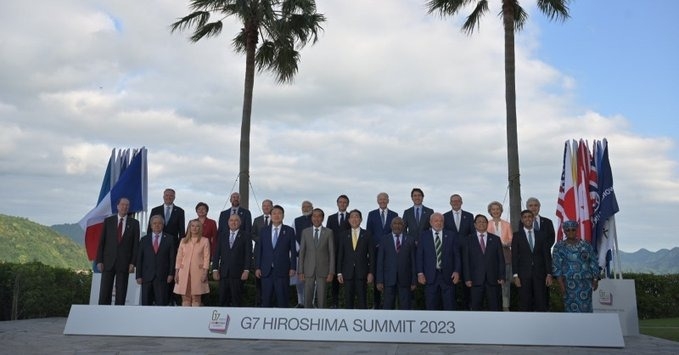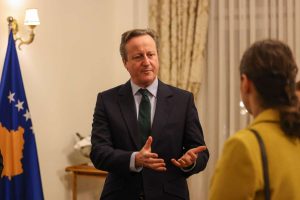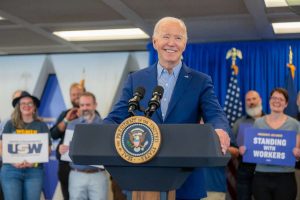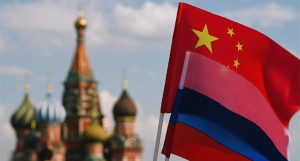In a communique G7 leaders outlined a strategy for dealing with China specifically…reports Asian Lite News
Western officials have become increasingly vocal about China’s use of trade restrictions in political disputes, although the G7 statement released on Saturday afternoon did not mention the country by name.
“The world has encountered a disturbing rise in incidents of economic coercion that seek to exploit economic vulnerabilities and dependencies and undermine the foreign and domestic policies and positions of G7 members as well as partners around the world,” the G7 leaders said.
“We will work together to ensure that attempts to weaponise economic dependencies by forcing G7 members and our partners, including small economies, to comply and conform will fail and face consequences.”
China’s use of punitive trade measures has been among the closely watched topics at the G7 summit, amid calls for coordinated action to push back against Beijing.
Japan, South Korea, Australia and Lithuania have all been hit with trade restrictions in recent years following disputes with Beijing on issues ranging from the origins of the COVID-19 pandemic to Taiwan.
In a communique released later on Saturday, the G7 leaders outlined a strategy for dealing with China specifically.
“We are not decoupling or turning inwards. At the same time, we recognise that economic resilience requires de-risking and diversifying,” the communique said. “A growing China that plays by international rules would be of global interest.”
On Tuesday, United States Ambassador to Japan Rahm Emanuel said the G7 was “developing the tools to deter and defend against China’s economic intimidation and retaliation”.
Former British Prime Minister Liz Truss earlier this year called for the creation of an “economic NATO”, saying the international community should be ready to implement tough sanctions on China if Beijing makes aggressive moves towards self-governed Taiwan.
Japan and European members have been seen as more hesitant to antagonise Beijing than the US because of their heavy reliance on Chinese trade.
Leaders of the Group of Seven (G7) emphasised their determination to strengthen disarmament and non-proliferation efforts, towards the “ultimate goal of a world without nuclear weapons with undiminished security for all.”
This came as the leaders met in Hiroshima for their annual Summit on May 19-21, where they affirmed keenness to coordinate their approach to economic resilience and economic security that is “based on diversifying and deepening partnerships and de-risking, not de-coupling; drive the transition to clean energy economies of the future through cooperation within and beyond the G7.” They underscored the necessity of launching the “Hiroshima Action Statement for Resilient Global Food Security with partner countries to address needs today and into the future; and deliver our goal of mobilising $600 billion in financing for quality infrastructure through the Partnership for Global Infrastructure Investment.”
The leaders also agreed to stronger language on short-term gas investments in the context of Russia’s ongoing war against Ukraine and the resulting energy crisis.
“We stress the important role that increased deliveries of LNG can play, and acknowledge that investment in the sector can be appropriate in response to the current crisis and to address potential gas market shortfalls provoked by the crisis,” reads the text.
The text makes clear these investments must be limited to “the exceptional circumstance” given the Russian-driven energy shock and “as a temporary response.”
Still, the green light to invest in more gas clearly runs against calls from the Intergovernmental Panel on Climate Change (IPCC) and the International Energy Agency (IEA) to stop new investments in fossil fuel production, and is likely due to intense lobbying from German Chancellor Olaf Scholz in the past week.
The G7 leaders also reiterated their joint commitment to 60 per cent greenhouse gas (GHG) cuts by 2035 and emission-free power grids in just over 10 years and highlighting plans to “accelerate the phase-out of unabated fossil fuels so as to achieve net zero in energy systems by 2050 at the latest in line with the trajectories required to limit global average temperatures to 1.5 degrees Celsius”.
Also the G7 leaders backed the commitment from their energy and climate ministers earlier in the year to rapidly hike investments in clean energy.
“The G7 contributes to expanding renewable energy globally and bringing down costs by strengthening capacity including through a collective increase in offshore wind capacity of 150GW by 2030 based on each country’s existing targets and a collective increase of solar PV to more than 1TW by 2030 estimated by the IEA and the International Renewable Energy Agency (IRENA) through means such as each country’s existing targets or policy measures.”
However, the G7 leaders did not endorse Japan’s efforts to promote coal and ammonia co-firing of coal in the communique. G7 leaders see the use of renewable hydrogen or ammonia (co-firing with coal) in the power sector as reasonable only if it can be aligned with a 1.5 degrees pathway.
It is a challenging sign for Japan as IEA’s 1.5 scenario sets a pathway that advanced economies need to phase out unabated coal power by 2030.






